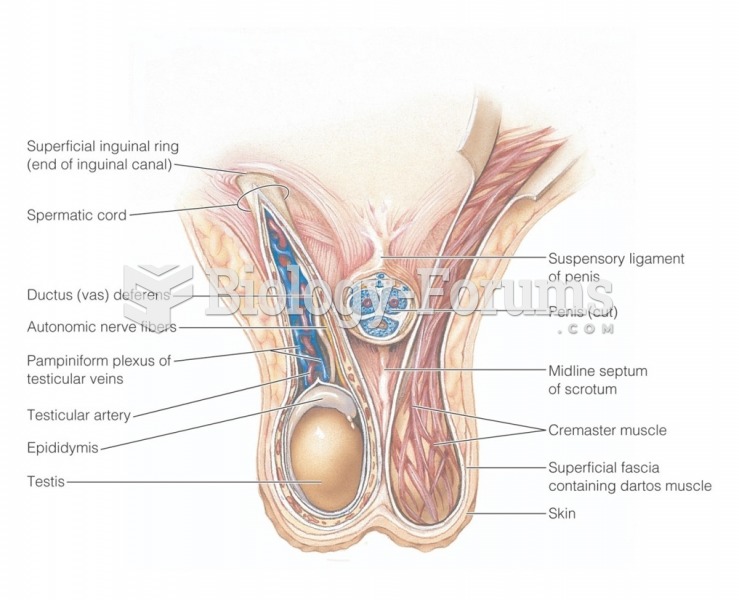|
|
|
The liver is the only organ that has the ability to regenerate itself after certain types of damage. As much as 25% of the liver can be removed, and it will still regenerate back to its original shape and size. However, the liver cannot regenerate after severe damage caused by alcohol.
More than 50% of American adults have oral herpes, which is commonly known as "cold sores" or "fever blisters." The herpes virus can be active on the skin surface without showing any signs or causing any symptoms.
Persons who overdose with cardiac glycosides have a better chance of overall survival if they can survive the first 24 hours after the overdose.
More than 4.4billion prescriptions were dispensed within the United States in 2016.
Acute bronchitis is an inflammation of the breathing tubes (bronchi), which causes increased mucus production and other changes. It is usually caused by bacteria or viruses, can be serious in people who have pulmonary or cardiac diseases, and can lead to pneumonia.
 If the valve clearance (lash) is not correct, loosen the retaining nut and turn the valve adjusting ...
If the valve clearance (lash) is not correct, loosen the retaining nut and turn the valve adjusting ...
 If the valve clearance (lash) is not correct, loosen the retaining nut and turn the valve adjusting ...
If the valve clearance (lash) is not correct, loosen the retaining nut and turn the valve adjusting ...





